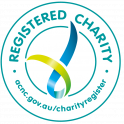Residential Care Psychological Services
Psychological services for clients of aged care homes on the Mornington Peninsula, Geelong-Otway regions, and Northern region of Melbourne.
For Residents
The prevalence of mental illness is higher amongst residents of Residential Aged Care Facilities (RACF’s) than it is for the general population, however Mental Health Services are not routinely available.
Where mental illness is diagnosed in residential aged care residents, the most likely intervention is the prescription of medication. This is despite their known side effects and the risk of drug-disease interactions which are more common in the elderly.
However, research evidence suggests that there are a range of non-pharmacological psychosocial interventions that are effective alternatives to the prescription of medication for the treatment of mental illness in frail aged people living in residential care facilities.
Up until recently, psychological support services for residents in RACF’s have not been routinely available.
What is Anxiety?
Anxiety is more prevalent in the aged care population than in the general community, with estimated prevalence rates of up to 58.4% of residential care residents experiencing anxiety or anxiety-related symptoms. (Creighton et al, 2019)
Anxiety is more than just feeling stressed or worried. While stress and anxious feelings are a common response to a situation where a person feels under pressure, it usually passes once the stressful situation has passed or ‘stressor’ is removed.
Anxiety is when these anxious feelings don’t subside; when they are ongoing and happen without any particular reason or cause. It’s a serious condition that makes it hard for a person to cope with daily life.
What is Depression?
Depression is the most common mental illness in old age (Pocklington, 2017) and the most commonly diagnosed mental health condition (49%) for people in permanent residential care (AIHW, 2019c).
Depression is more than just a low mood; it’s a serious condition that has an impact on both physical and mental health.
While we all feel sad, moody or low from time to time, some people experience these feelings intensely, for long periods of time (weeks, months or even years) and sometimes without any apparent reason.
There are many types of non-medication related therapies that have been found to be effective for people experiencing anxiety and depression including talk-based therapy.
What do we provide?
Talk Based Therapy
As people age, life can become more challenging with health problems, changes in where you live and the loss of loved ones and pets. This can cause anxiety and depression. Talking to someone about how you are feeling, can help.
For 4 years, we have been providing a range of talk-based therapies, including:
- Reminiscence Therapy
- Life Review Therapy
- Problem-Solving Therapy (PST) and
- Acceptance and Commitment Therapy (ACT).
Our results, both quantitative and qualitative, have shown an overall stabilisation or reduction in psychological distress, social isolation and depression.
We have supported residents with (and not limited too):
- transition and adjustment to moving into a RACF
- feeling less affected by their current stage of life and diagnosis (mood improvement)
- becoming more engaged with RACF life
- developing strategies for managing feelings of frustration, anxiety and stress
- being better able to deal with issues that they sought help with
- feeling more confident making decisions regarding their care
- reducing depression related to past experiences
- reducing post-traumatic stress
- mood enhancement through meaningful and purposeful activities
- improving sense of well-being
- recognising and understanding grief, loss and the impact on mood.
Group Therapy
Group therapy is a research-based practice used to actively engage RACF residents as they strive to improve their health, functioning and well-being. Group therapy embraces the belief that the group can help address diverse physical, emotional, cognitive and social needs.
Better Place Australia has a Group Therapy Program that is designed to support the mental health and well-being of older adults living within residential aged care, in a fun and social way. It offers creativity, fun and social interaction which are the essential elements of well-being.
It can also:
- enhance quality of life
- reduce feelings of sadness and social isolation
- offer relaxation
- support memory enhancement
- promote social connections and
- give rise to memories.
Our Program Includes:
Seated Dance Therapy
Our Seated Dance therapy program is a therapeutic program that offers creativity, fun and social interaction which are the essential elements of aged care residents well-being. The use of seated dance, movement and creativity can:
- enhance quality of life
- reduce feelings of sadness and social isolation
- offer relaxation through physical activity
- promote social connections
- give rise to memories.
Memory Collective Program
A program for residential aged care residents that focuses on past experiences and life achievement through sharing of stories and memories
Men’s Group
Our Men’s Group is a program that can help by reducing social isolation by forming connections with other men within residential aged care facility settings. The group helps men to realise that they are not alone in their feelings, while working to find ways to support, encourage and learn from one another
Music Therapy
Music Therapy actively supports residents as they aim to improve their health, functioning and well-being. It can help residents of all ages to manage their physical health, well-being and their quality of life.
Drumming for Well-being
The Better Place Australia seated Drumming for Well-being program is a therapeutic program that improves mood, well-being, decreases anxiety and improved social connection. It can also improve self confidence! There are many therapeutic effects of this ancient rhythm technique that brings people together in a safe space.
Drumming for Well-being can:
- boost the immune system
- produce feelings of well-being
- help release feelings of sadness
- foster teamwork
- build community
- improve well-being
- empower the human spirit.
Free Education for RACF staff
Lack of awareness and understanding of mental health conditions in the elderly amongst RACF staff is well recognised (Bagley et al, 2000; Davison et al, 2009; Lyne et al, 2006; Davison et al, 2013). This may result in RACF staff may not be able to identify or recognise mental health illness in residents.
Davison et al (2009) also found that those staff with the highest level of direct contact with residents (such as personal care workers) were less likely to have received any formal training or to have only received brief aged care training with no training in mental health.
Davison et al. (2009) found that a majority of residential aged care staff believed that depression is a normal consequence of ageing or relocation into a residential aged care facility. The ‘normalisation’ of depression in the elderly negates the requirement for active intervention by staff.
This education has been developed by Swinburne University and Better Place Australia and is suitable for all RACF staff members. It helps staff to identify and respond to residents’ mental health concerns.
Sign up
You can sign up here or scan the QR code below.

Let’s get started
Our therapies may not only support a person to recover but can also help to prevent the anxiety or depression from reoccurring.
The services will be delivered on an individual basis and/or through group sessions. The services will be offered on site at your Aged Care Home or via phone and via tele-health.
We will work with each individual resident to find the most effective service catered to their individual needs.
If you or your loved one have not been feeling yourselves lately or you have been feeling down or anxious, we can help.
If you would like to discuss the program in more detail or to refer a client, please contact the practitioner for your region.
Rhonda Withers on 03 9556 5333 or email Rhonda Withers for:
- Geelong Otway regions of the Western Victoria Primary Health Network
- Northern region of Melbourne (encompassing these local government areas: Darebin, Hume, Merri-bek, Yarra, Melbourne, and Gisborne part of the Macedon Ranges)
- Mornington Peninsula region of the South Eastern Melbourne Primary Health Network.
Learn more
Read the Centre for Better Relationships (CBR) research into Mental Health Interventions for Aged Care.
Read the op-ed about the need for encouraging the inclusion of older people in society, a part of the research conducted by the Centre for Better Relationships.
CBR is the research arm of Better Place Australia.
Find out more about this service
Make an enquiryGet Support
Please make an enquiry if you would like to book an appointment for one of our services. Alternatively, you can live chat with us during business hours.






